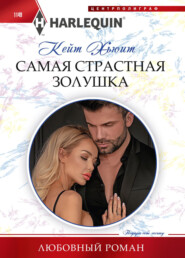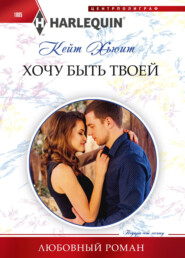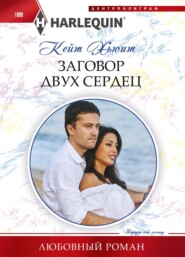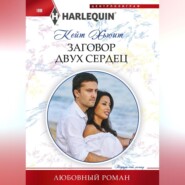По всем вопросам обращайтесь на: info@litportal.ru
(©) 2003-2024.
✖
Zoe's Lesson
Автор
Год написания книги
2019
Настройки чтения
Размер шрифта
Высота строк
Поля
‘I’d like you to go to New York,’ Oscar said, withdrawing a leather wallet from the drawer. Inside Zoe glimpsed a first-class plane ticket. ‘You can stay in the apartment there as long as you like.’
She took the wallet, her fingers digging into the soft leather. ‘Why do you want me to go?’ she asked, although she heard the question underneath: Why do you want me to leave?
Oscar sighed wearily and rubbed his eyes. ‘I read your mother’s journal myself, Zoe, and from the things she’s written, I have a good idea of who—’ He paused, and when he spoke again his voice sounded sorrowful. ‘Who your biological father might be.’
Zoe stiffened, froze. ‘You know? Who?’
Oscar waved a hand towards the wallet. ‘The details are in there. But he’s in New York, and I think it will help you to know…and perhaps even to find him.’ He paused, his smile gentle and touched with sorrow. ‘You’re stronger than you think, Zoe.’
Yet she hadn’t felt strong then, and she didn’t now. She felt appallingly, pathetically weak, too weak even to look for the man she’d come to find. Too weak and afraid to even talk to anyone at this party; every outing frayed her composure, her sense of self, a bit more, until she was left clutching the ragged edges, feeling as if she had nothing, was nothing.
Who was she? Who could she be now?
Another sip of champagne, Dutch courage. God knew, she didn’t have any of the real kind.
Max surveyed the milling crowd in the art gallery, a mass of bright, blurred shapes. Had his vision worsened in the few hours since his doctor’s appointment, or was it simply psychological? His mind, bent with fear, making him think he really was seeing less? Although if vision were simply a matter of will, surely he would see perfectly by now. He wanted nothing more.
He took a sip of champagne, one shoulder propped against the metal pillar of the soaring loft space, its walls decked with nouveau art that fortunately really were just blobs of colour.
He hadn’t wanted to come tonight; the only reason he had was because his company, Monroe Consulting, had donated an embarrassingly large amount towards this exhibition. Glancing at the walls, Max wasn’t sure why he’d allowed a quarter million dollars to fund what looked like really appallingly bad art, but he supposed it hardly mattered. Someone on his board had made the decision months ago, and he’d signed off on it because he hadn’t much cared. He’d been too busy with his life, with managing his company, flying his plane and finding the next beautiful woman to grace his arm. All those pursuits, he acknowledged grimly, would soon be denied to him, one way or another. Some, like flying, were already. For the rest it was simply a matter of time.
‘Max.’ A woman pressed his hand with both of hers, and he inhaled her cloyingly floral scent. She dropped her voice to a breathy whisper. ‘So good of you to come. Considering…’ She trailed off delicately, but Max wasn’t in a mood to let her off the hook. He couldn’t quite make out her features but the nauseating perfume and the deliberate whisper told him all he needed to know. This was Letitia Stephens, one of New York’s most prominent aging socialites, and a notoriously vicious gossip.
He arched an eyebrow and offered his most urbane smile. ‘Considering what, Letitia?’
A tiny pause, and she withdrew her hands from his, shifting her weight in a slightly discomfited manner. ‘Oh, Max.’ This was said almost reproachfully, and Max just smiled and waited. ‘Everyone has been so worried for you…since the accident…’
Suddenly Max’s moment of good humour—or something close to it—evaporated. He’d walked right into that one, but he still didn’t want to be reminded of his accident…the smoke, the sudden darkness. The spiralling into nothingness, the agonising understanding of just what had happened. The pain and the memory. No, he didn’t want to remember.
He straightened, his body stiffening, shoulders back, a position he wore like armour, remembered not only from his years in the military, but from childhood.
Stand up straight. Take it like a man.
‘Thank you for your concern.’ He said it as a dismissal, and Letitia Stephens was—for once—wise enough to accept it as such. Max was glad he couldn’t see well enough to catch the murderous glare she was undoubtedly favouring him with, the poisonously saccharin smile. He turned away, not wanting to invite another conversation.
Alone, he tossed back the last of his champagne and debated leaving. It wasn’t even nine o’clock, and the organiser of tonight’s party, a glamorous socialite named Karen Buongornimo—all he’d seen was a flash of dark hair and the gleam of an artificially whitened smile—had yet to speak. He would be publicly thanked; he needed to stay. This would, he determined, be the last such event he attended. It wasn’t simply difficult to navigate the sea of blurred faces and bodies; it was dangerous and humiliating. He did not intend to endure it another time. Grimacing, he held out his glass for a refill.
Zoe skirted the edge of the crowd, clutching her champagne, avoiding conversations. She watched as Karen called for everyone’s attention, and half listened as she gave a flowery speech about the importance of supporting emerging artists and how Monroe Consulting had been so fabulously generous. Monroe Consulting…that must be Max Monroe’s firm. The man with the thundercloud. Zoe felt another little dart of curiosity. She tossed back the rest of her champagne. Tonight was not a night for thinking. Or remembering.
Tonight she was going to have fun. She was good at that; she’d always been good at that. And now it helped her to forget.
‘And I’m sure Max Monroe would like to say a few words…’ Zoe didn’t so much as hear Karen’s introduction as the deafeningly awkward silence after it. Heads turned, bodies swivelling, waiting for the man in question to speak.
He didn’t.
Zoe craned her neck, standing on tiptoes in her already stiletto heels, but there were too many people—not to mention a large concrete pillar—for her to see the dreaded Max.
Finally, when the silence had gone on long enough for Karen to look both annoyed and embarrassed, and several people had cleared their throats in a telling manner, he spoke.
‘I have one word.’ His voice was low, his tone dry, almost, Zoe thought with a pang of recognition, bitter. ‘Cheers.’
Another silence, and then someone called out, ‘Hear, hear!’ and a peal of laughter like staccato gunfire burst out, the tension easing. No one wanted the party to be ruined, it seemed.
‘Cheers,’ Zoe said aloud, and reached for another glass of champagne.
She might not be a Balfour any more, but she could still act like one.
She surveyed the crowd; she recognised most people, knew only a few. Good. It was better that way. Tonight she wanted to laugh and forget the burden of her birth. She wanted to have fun.
‘Drowning your sorrows, darling?’
Zoe froze. She knew that voice, hated that voice. She turned slowly, hardly able to believe who she was seeing…Holly Mabberly, her nemesis from boarding school and the it-crowd in London. They weren’t enemies, precisely. Nothing so uncivilised. In fact, most people probably thought they were friends. They airkissed and chatted in public, laughed in perfect trills and fetched each other drinks. During one winter evening Holly had even borrowed her new pashmina when they’d decided to walk to another party. Zoe wasn’t sure she’d ever returned it.
Yet she would never call Holly her friend. She remembered in year four at Westfields, when a scholarship girl had been caught filching lipsticks from the chemist’s in the village, and had been expelled. Holly had smiled a terribly cold smile and said, ‘Well, that’s a relief.’
Zoe didn’t know why that seemingly insignificant moment had stuck with her, why that smile had chilled her to the bone, the offhand, callous remark cutting deep. Yet it had. For in Holly’s arctic gaze she sensed a predatory anticipation, an eagerness to see the high brought low.
And this was surely the moment she’d been waiting for, for Zoe had been brought very low indeed.
Zoe hesitated a split second before taking a final sip of her drink, draining its dregs. Then she lifted her head, tilting her chin as she deposited her glass on a nearby tray. ‘What sorrows, Holly?’ she asked sweetly. ‘I’m having the time of my life.’
Holly’s mouth turned delicately down at the corners in a perfected expression of false compassion. She reached out to clasp Zoe’s bare arm with her hand, her fingernails digging into the tender skin. ‘You don’t need to pretend with me, Zoe. I know—well, actually I can’t know, as I’m not…you know—but I can only imagine how you feel absolutely—’ she paused, searching for the word before latching onto it with relish ‘—destroyed.’ She squeezed her fingers again as she added sadly, ‘Completely lost.’
Zoe blinked, surprised by Holly’s inadvertent perception, for that was exactly how she felt. Lost, spinning in a great void of unknowing, the ground she’d thought so solid under her feet not simply shifted but gone. She blinked again, refocusing on Holly, her blue eyes narrowed to assessing slits, her mouth still curved in a smile that didn’t even bother masquerading as anything but malice.
‘Lost?’ she repeated with a little laugh. She choked on the sound; it wasn’t her perfect trill. More like a wobble. ‘Good gracious, Holly, you’re sounding awfully melodramatic. Why should I feel lost? I think the only time I felt that way was when we tried to walk back from the Oxford-Cambridge boat race—do you remember?’ She laughed again, and this time the sound rang true—or rather false—a perfect crystalline peal. ‘It took us four hours to make it from Putney Bridge to Mayfair. Too many drinks, I suppose.’
‘Darling.’ Holly squeezed her arm, her nails digging in deeper. Zoe bit the inside of her cheek to keep from wincing. ‘I told you, you don’t need to pretend with me.’ She dropped her voice to a whisper that still managed to carry to seemingly every corner of the room. ‘Is it just too, too awful? Is that why you came to New York? To get away from all the gossip, the whispers and stares?’ Holly made a moue, the expression of sympathy so patently false it made Zoe’s skin crawl.
‘I’m fine, Holly,’ she managed to say, but her voice sounded wooden. It had been three weeks since the Charity Ball, but this was the first person who had dared to openly confront her about the tabloid’s story in all that time, the first person whose scorn and relish she had to face, and of course it had to be Holly Mabberly. Yet it hardly mattered; there were dozens of Holly Mabberlys in the world, in her life, people who would act just the same as she was, disguising scorn with sympathy. She shook Holly’s arm off, giving her an icy smile. ‘So sorry to disappoint you, as I’m sure you’d prefer me in floods of tears, but really, I’m fine.’
Holly just shook her head. ‘Oh, darling, you don’t need to take it out on me.’ This was said with the perfect combination of reproach and pity that had Zoe swallowing a molten lump of fury. Holly patted her cheek. ‘I can only imagine how utterly difficult it must be. You can hardly hold your head up in England any more, can you? Not amongst anyone who matters anyway.’ Holly clucked her tongue, and this time her voice carried all too well. ‘It’s too, too sad. I suppose blood will out, though, won’t it?’
To her horror Zoe found her eyes suddenly filling with tears. Stupid. Holly’s remarks were childish and aimed to wound; how could she let them? And how could she cry here? She wanted to hold her head high and proud, as Oscar had said. She did. She just wasn’t sure she could. She wasn’t strong, no matter what he thought.
She could not, would not, cry now, not in front of Holly Mabberly, who would gloat and tell every soul and socialite from here to Paris, not in a room full of strangers who suddenly seemed no more than a gang of nosy eavesdroppers. Not here. Please, not here. She hadn’t cried since she’d learned the news; she’d kept it together, her composure all too fragile but still intact. Why on earth would she break down in the middle of a party?
She’d been having fun, for heaven’s sake.
‘Oh, Zoe…’ Holly murmured, reaching out again, but Zoe avoided her grasping claw and took a stumbling step backwards.
‘Leave me alone, Holly. Just leave me alone.’ The last came out in a strangled sob that made Zoe close her eyes in an agony of humiliation. She spun away from Holly, reaching wildly for another glass of champagne—anything to forget that wretched moment, her whole wretched, false life…
Half hiding behind a pillar, a few deep breaths—and sips—later, the threat of tears had mercifully receded and Zoe felt more like herself, although, she acknowledged, she hardly knew who that person was any more.
She surveyed the crowd, conscious of a new crop of speculative looks, a sly ripple of curious murmurs. Was everyone looking at her, or was she just imagining it in a fit of humiliated paranoia? If she left now, would it be so obvious that she was running away…again?
Her gaze fastened on a man in a corner of the room, his shoulder propped against a pillar, a glass of champagne in his hand. He was incredibly good-looking, with dark, cropped hair, olive skin and a towering physique that did more than justice to the expensive navy suit he wore. Yet it was the look on his face that appealed to Zoe; he looked beyond bored, totally uninterested in the party or anyone there, and the thought filled her with a strange, dizzy relief.

















